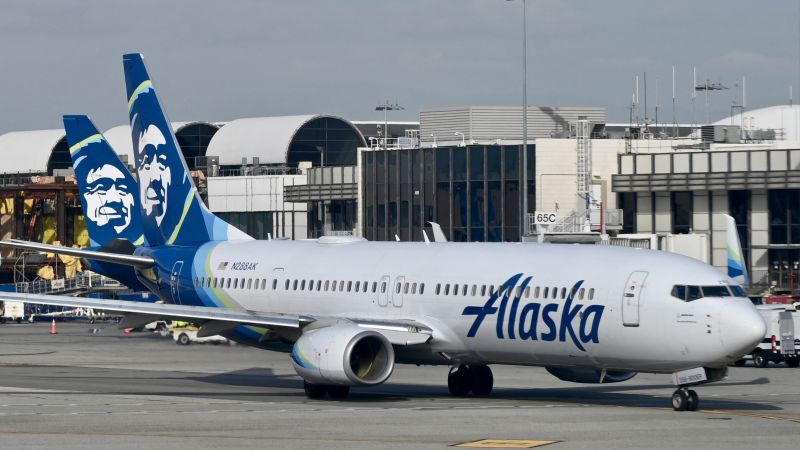Professional Pilots Urge FAA to Prioritize Mental Health Reform
Published October 15, 2023
Commercial airline pilots are calling on the Federal Aviation Administration (FAA) to address long-overdue mental health reform in the industry. Pilots share concerns that seeking help for mental health issues could result in the end of their careers. Recent incidents, such as a pilot attempting to crash an Alaska Airlines flight, have brought these concerns to the forefront. The current process for certifying pilots is seen as outdated and discourages pilots from reporting mental health problems. The National Transportation Safety Board and top aviation safety advocate Jennifer Homendy also support the need for change. The FAA has stated that it encourages pilots to seek help and that most treated mental health conditions do not prevent pilots from flying. However, the agency’s system for certifying pilots has created a stigma around mental health issues, leading many pilots to suffer in silence. Research shows that over half of pilots avoid seeking healthcare due to concerns about jeopardizing their medical certificate. The FAA and the aviation industry must determine how to prioritize mental health while maintaining the safety record of commercial aviation in the United States.
A Call for Reform
Professional pilots in the United States are demanding that the FAA address the long-standing issue of mental health reform within the industry. Many pilots fear that seeking help for mental health issues will result in the FAA terminating their careers. This concern has been exacerbated by recent incidents, including a pilot attempting to crash an Alaska Airlines flight. These events have highlighted the urgent need for change in the certification process for pilots.
The current system requires pilots to disclose any mental health disorders or treatments during their medical examinations. Disclosing depression or anxiety can lead to denial of a medical certificate, triggering extensive paperwork, doctor visits, and evaluations from the FAA. The process can be costly and time-consuming, lasting over a year and costing thousands of dollars.
Aviation medical examiner Dr. Brent Blue, who has four decades of experience in the field, has criticized the FAA for discouraging pilots from reporting their mental health problems. Dr. Blue argues that the current system essentially encourages pilots to hide their issues. The FAA maintains that it has made efforts to eliminate the stigma surrounding mental health and encourages pilots to seek help. However, the agency’s top medical official, Dr. Susan Northrup, declined to comment on the issue.
Support for Change
Leading voices in aviation safety, such as National Transportation Safety Board Chair Jennifer Homendy, are joining the call for mental health reform. Homendy describes the FAA’s certification process as “arcane” and believes it creates a stigma that prevents pilots with treatable mental health conditions from seeking help. The FAA has strict rules regarding mental health, and any significant mental health issues are grounds for revoking a pilot’s medical certificate. Pilots found lying to the FAA face serious legal consequences, including imprisonment and hefty fines.
A study conducted by the University of North Dakota reveals that over half of pilots avoid seeking healthcare due to concerns about their medical certificates being revoked. Neurologist and researcher Dr. William Hoffman acknowledges that the FAA’s structure has made commercial aviation exceptionally safe but emphasizes the need to adapt to modern understandings of mental health. The FAA produced a report following major incidents involving pilots with mental health issues, recommending an environment where pilots feel comfortable reporting their concerns and can receive prompt treatment.
An Industry Under Pressure
The aviation industry has been under immense pressure in recent years, with stress levels among pilots increasing. The COVID-19 pandemic and subsequent worker shortages have exacerbated the situation, leading to unreliable flight schedules and reduced confidence among pilots. Captain Dennis Tajer, a spokesman for the Allied Pilots Association, notes that these issues are causing significant strain on pilots who may already be dealing with mental health challenges.
Pilot unions are offering peer support programs to provide pilots with a platform to discuss the burdens they face. The Air Line Pilots Association’s Pilot Peer Support program offers round-the-clock support for pilots dealing with work or personal issues. These support systems, along with the presence of two pilots in the cockpit, help ensure passenger safety.
A Time for Change
With a new FAA administrator taking office, there is hope for meaningful conversations and reforms regarding mental health and aviation. Jennifer Homendy, as the Chair of the National Transportation Safety Board, intends to push for a reconsideration of the FAA’s approach to mental health. Aviation experts agree that it is crucial to prioritize mental health while maintaining the industry’s safety standards. The FAA must address the concerns of pilots and create a system that supports their mental well-being without compromising safety.


